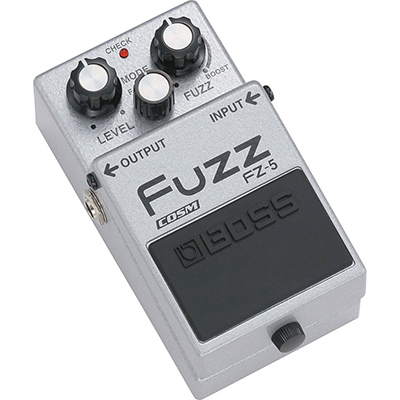
By Ed Malaker
Posted 07/27/2018
Let’s talk about the difference between germanium and silicon transistors and what it means to guitar players and audio in general, especially fuzz.
The Fuzz Effect
Fuzz is a type of distortion that guitar players use. It is most often found in an effect pedal and it creates a buzzy tone that’s associated with an overdriven amplifier or a torn speaker. Transistors play a vital part in the design of this effect and their germanium and silicon diodes can sound quite different in the final result.
The transistor is considered to be one of the most important inventions of the 20th century, perhaps even, of all time. It’s the backbone of almost every electronic device that we use. Some examples include our digital alarm clock, cell phones, and computers. The transistor is a fairly simple component that has three prongs, one for an incoming signal, one for an outgoing signal, and one for applying voltage. In its simplest terms, it amplifies a signal based on the voltage applied to it, and it can also be used as a voltage-controlled switch.
The Germanium Transistor
The germanium transistor was the first to be mass-produced and made commercially available to the public. This transistor was used extensively in radio technology, helping to create the first portable AM radios, as well as the first car radios. It was even used in a few of the first guitar effect pedals in the 1960s. These would primarily be those such as the Gibson Maestro, the Sola Sound Tone Bender, and a few others.
Many guitarists feel that the germanium transistor creates a warm fuzz tone similar to the sound of an overdriven tube amplifier. Because of the smooth fuzz that they are said to produce, germanium transistors are still highly sought out today. Many effect pedal manufacturers have also started to release fuzz pedals that once again make use of germanium transistors. To get the germanium fuzz sound in an effect pedal today you can check out the Havalina, 69 mkII, and Buffalo FX Germanium Fuzz.
The problems with germanium transistors are many. For example, it is not a very common element, and the actual process of making transistors out of germanium has proven to be tedious and not easily automated. This has led to a higher-priced component. Germanium transistors are very temperature sensitive and the sound that they produce will change depending on their temperature. This has led guitar players to store their fuzz pedals in the freezer to cool them before important recordings.
Another problem with germanium transistors is that they sometimes store an electrical charge which can also cause them to “sound different.” Finally, because each transistor had to be made “almost by hand,” each one could be different, and choosing one that was a good fit for a pedal could be time-consuming at best.
Because of these problems, other ways to make transistors were sought out. So, after only a few years of production, the industry moved away from germanium, and silicon became the transistor of choice.
The Silicon Transistor
Silicon transistors are superior to germanium in almost every way. It is easily obtainable, it remains stable at much higher temperatures, it has a higher voltage threshold. Also, it is much more sensitive to high frequencies and it puts out more gain. Silicon transistors are much cheaper to mass-produce and each one is identical. Silicon does not store voltage, and it creates the same tones from day to day, and unit to unit. The creation of the silicon transistor is directly responsible for the creation of the Integrated Circuit or IC chip, which ushered in, and is the heart of our Computer Age.
Germanium and Silicon: A Hotly-Debated Topic
Many guitar players prefer germanium over silicon transistors for their pedals because of the slightly smoother fuzz that’s produced by their more quickly-moving electrons. The high-frequency response of silicon, on the other hand, can lead to a brittle and thin sound that many guitar players might describe as harsh.
But despite the fact that most guitar players seek out germanium transistors for their fuzz pedals, the vast majority of these pedals are made using silicon transistors, for the very practical reason that they have a long-standing track record of being affordable and long-lasting, with a very usable and recognizable fuzz. You can hear some great-sounding fuzz using silicon transistors, by listening to a Big Muff Pi, Tortuga Sasquatch Silicon Fuzz Guitar Effects Pedal, Pro Co Rat 2 Distortion/Fuzz/Overdrive Pedal, and many more.
Of course, the debate over germanium and silicon is a subjective preference. At the end of the day, kind of sound works for you?
If you’ve found this article helpful, please feel free to share this with your friends on Facebook and Twitter. For more articles on guitar electronics, visit humbuckersoup.com.
